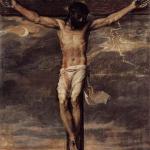These are dark days for orthodox believers and conservatives (the two groups intersect but are not the same). But these are also days when we should be reminded of bright hopes.
Let me explain.
First there was Thursday’s Supreme Court decision that smoothed the skids for ObamaCare by interpreting the Congress-mandated “state exchanges” to mean “State [as in the federal government] exchanges.” Chief Justice John Roberts, in his majority opinion, did what he had said he did not believe in but which he has now done twice–rewrite law from the bench. In the words of the editors at the Wall Street Journal, “The Chief Justice again rewrites ObamaCare in order to save it.”
We conservatives don’t want it saved because we think it has enormously expanded this Leviathan state at the expense of freedom–both religious and economic–and at the expense of economic expansion. Not to mention reducing choice in health care and diminishing its quality. It has been a major drag on the economy, and that hurts all of us, especially the poor.
That’s why repealing ObamaCare (and replacing it with a plan that combines freedom and compassion) is a matter of social justice.
Good Christians disagree on ObamaCare. So I will move on to yesterday’s Supreme Court decision, which was far worse.
I refer of course to the decision to federalize gay marriage, striking down state laws against it. It is being compared to Roe v. Wade because it (Roe) also struck down state laws reflecting democratic majorities and created deep division in society that still plagues us.
[To be fair, I should add that John Roberts’ dissent on this ruling (the Constitution “had nothing to do with it”) is being praised by both conservatives and the orthodox.]But this is worse. It will put the federal government on the side of the New Intolerance. Orthodox believers–Jewish, Christian, and Muslim–who don’t want to bake cakes or take pictures for gay weddings are already being vilified and driven out of business. Now it will be churches and priests/ministers/rabbis who refuse to perform gay weddings. The rest of us who voice opposition or turn down invitations to gay weddings or refuse to hire an active gay as a staff member at a church or Christian school or Christian adoption agency will be called immoral and Neanderthal and hateful and intolerant.
Or homophobic or–this is the newest–transphobic. We will be compared to the bigots who opposed interracial marriage.
Our churches should get ready to lose their tax-exempt status. Dominic Bouck reflects on this at First Things Online.
But for the orthodox (I don’t say evangelical anymore because the word–without serious definition–has become as meaningless as “Christian” and “love” ) there is reason to have bright hopes.
Do you remember the story–as far as I know based on a real incident–that was circulated in the West after the 1989 fall of communism in eastern Europe? The story about the armed soldier who broke into a church at night where it was holding a service and ordered everyone to leave except the real Christians?
A good number fled in terror.
The soldier then bolted the door and turned to the frightened souls who remained.
“I am a Christian and wanted to make sure I could worship with real believers.”
This is what might happen in the next few years in our until-now-bloated churches. In some parts of the country it has been a social advantage to go to church. Good for making friends and getting business contacts.
That will diminish, and it’s a good thing.
It reminds me of what Stanley Hauerwas said some years back: “God is killing mainline Protestantism, and it’s a good thing.”
It’s a good thing because it will purify our churches. Not with perfect purity because we are sinners and finite, and the devil still prowls around like a hungry lion looking for souls to devour.
But it will help us remember that Jesus did not try to win the multitudes. He went after the remnant, spending most of his time training the remnant–the Twelve. He was popular with the multitudes some of the time, but most of them departed when he turned to the cost of discipleship.
We in America have been spoiled for a long time. We orthodox have not faced persecution. In that we have been unlike many (most?) of the billions of believers down through the centuries, especially in the first 300 years of the Church.
We have not known the joy that comes amidst suffering–the joy that is unknown to those who never really suffer for their faith.
We have forgotten the words of Jesus that are suddenly becoming real and shocking: Blessed are you when people hate you and when they exclude you and revile you and spurn your name as evil, on account of the Son of Man! Rejoice in that day, and leap for joy, for behold, your reward is great in heaven; for so their fathers did to the prophets. (Luke 6.22-23)
Try leaping for joy today.














